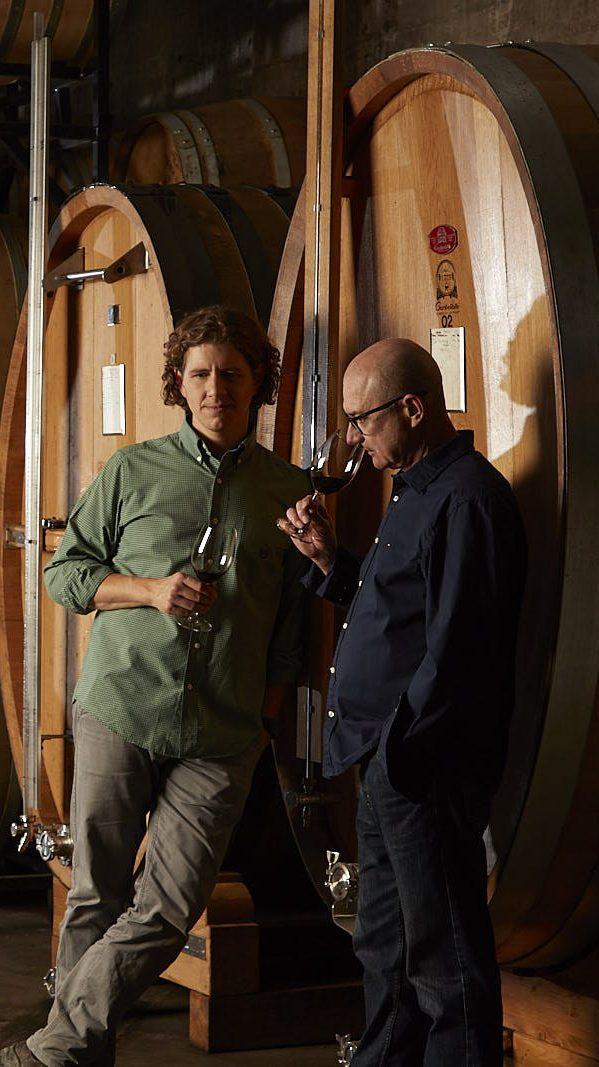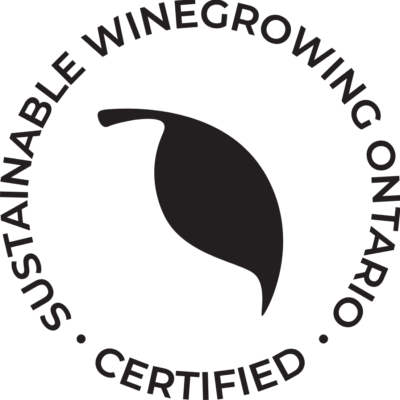
Finbar Cahill on discovering wine gems in Ontario and Okanagan
Cave Spring Vineyard figures prominently in UK trade publication's feature on Canadian wine.Author: Finbar Cahill
Publication: The Buyer
Published: 01/2026
The relative affordability of its fine wines, could see Canadian wine producers getting more of a foothold in the UK market, argues wine buyer and consultant Finbar Cahill. Travelling across the…
Read More

Ontario’s Top 20 Wineries of 2025 | The 50 Standout Canadian Wines of 2025
CSV cracks lists of Ontario's Top 20 Wineries of 2025 list, and 50 Standout Wines of 2025.Author: Carmelo Giardina
Publication: VineRoutes
Published: 12/2025
Ontario’s Top 20 Wineries of 2025
Cave Spring Vineyard
Sustainably focused with a consistent quality track record, their Rieslings are some of the best you’ll come across in the country, but that’s…
Read More

The Enthusiast 100: The Best Wines of 2025
Major US wine magazine places Cave Spring Vineyard Riesling Icewine in its list of the best wines of the year.Author: Michael Alberty
Publication: Wine Enthusiast Magazine
Published: 12/2025
Every year, our reviewers blind-taste 25,000 wines from around the world in search of those rare bottles that stop us in our tracks. The result is The Enthusiast 100 list — an annual showcase of…
Read More

Ontario Cabernet Franc: Working hard, but no longer a workhorse
Prestigous UK wine journal gives a nod to Cave Spring Vineyard as one of Ontario's elite producers of Cabernet Franc.Author: Sarah Marsh, MW
Publication: The World of Fine Wine
Published: 12/2025
Growers in the cool-climate Canadian region have changed focus and are now producing a raft of good wines from the variety. Sarah Marsh MW meets the growers and tastes the wines responsible for the…
Read More

Top 100 Best Buys of 2025
Cave Spring Cabernet Franc places among The 100 Best Buys of 2025 of New York-based Wine Enthusiast.Author: Michael Alberty
Publication: Wine Enthusiast Magazine
Published: 09/2025
The aromas of Bing cherry snow cones, violets, blackberries and chamomile are so fresh that it feels like someone opened the window for a breeze to pass by. It is a bit different when you take your…
Read More
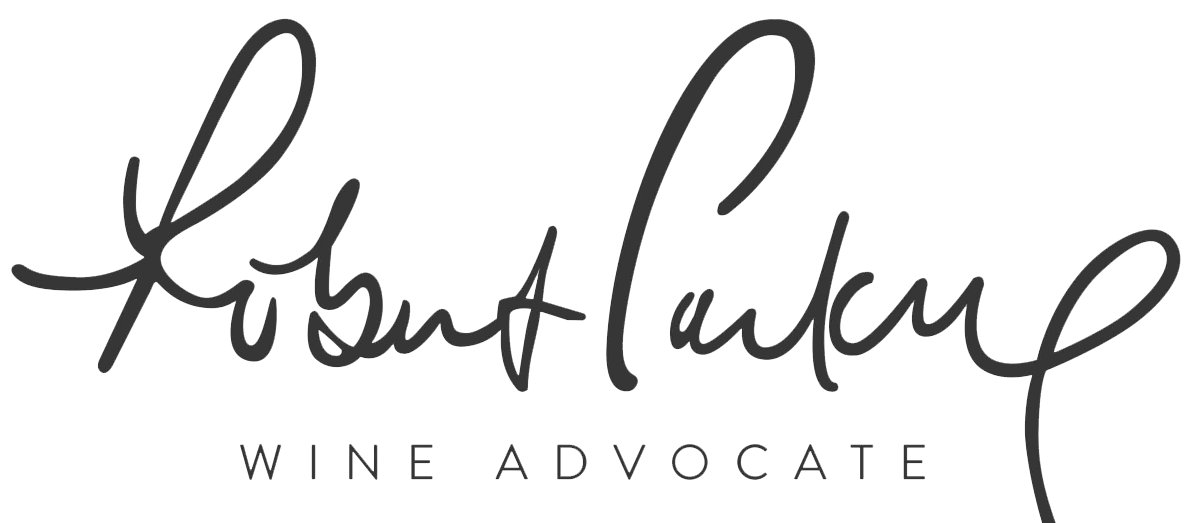
Canada, Ontario: Cave Spring Vineyard
Globally esteemed US wine journal Robert Parker Wine Advocate shines the light on Cave Spring Vineyard in Ontario regional feature.Author: Joe Czerwinski
Publication: Robert Parker Wine Advocate
Published: 04/2025
Cave Spring was established in 1978 by the Pennachetti family, who decided to plant vinifera grapes on the site of a former apple orchard set against the limestone of the Niagara Escarpment.…
Read More

Buying Guide, Winter 2025
US magazine Wine Enthusiast gives Cave Spring Vineyard Riesling Icewine 96 points.Author: Michael Alberty
Publication: Wine Enthusiast Magazine
Published: 03/2025
lorem
Read More
Top 100 Best Buys of 2024 | This Year’s Most Amazing Wines Under $20
America's Wine Enthusiast selects Cave Spring Vineyard Riesling for its Top 100 Best Buys of 2024.Author: Michael Alberty
Publication: Wine Enthusiast Magazine
Published: 02/2025
After a thorough review of the more than 23,000 wines we blind tasted in the past year, Wine Enthusiast editors have identified a remarkable array of exceptional wines priced at $20 or less. Our…
Read More

The evolution of Riesling on the shores of the Great Lakes
Cave Spring Vineyard Rieslings capture the attention of the UK's preeminent wine publication – Decanter.Author: Magdalena Kaiser
Publication: Decanter Magazine
Published: 11/2024
2022 Riesling CSV, Beamsville Bench, Estate Grown – 94
The prized Cave Spring Vineyard (CSV) is nestled near the top of the Beamsville Bench and consistently produces top Riesling from vines that are…
Read More

Wines of the Year 2023: Offbeat Category
Winemaker Gabriel Demarco's 2018 'Prova' Riesling, highlighting his work with skin contact and skin fermentation, earns a spot on Decanter's list of the top 35 'Offbeat' wines for 2023.Author: Tina Gellie
Publication: Decanter Magazine
Published: 12/2023
All the fun and fascination of the wine world was on show in the offbeat category of the 2023 Decanter Wines of the Year blind tasting, highlighted by a gorgeous array of Greeks, complex Italians, a…
Read More

Holiday Wine Guide: The LCBO's best bottles under $20 | Seventeen excellent bottles that won't break the bank
Toronto Life coins Cave Spring Chardonnay, "the LCBO’s best... at this price – from any country."Author: André Proulx & Michael Pinkus
Publication: Toronto Life
Published: 12/2023
One of Ontario’s oldest wineries, Cave Spring continues to lead the province’s pack in quality and price. This bottle perfectly balances notes of vanilla, peach and pear, demonstrating what is…
Read More

Top 20 Ontario Chardonnays
High Praise from Decanter Magazine (UK) for Cave Spring Vineyard Chardonnay and Pinot Noir.Author: Tina Gellie
Publication: Decanter Magazine
Published: 12/2023
Cave Spring Vineyard 2020 Chardonnay CSV, Beamsville Bench, Estate Grown – 91 Pts | Top 20 Ontario Chardonnay
Riesling and sparkling are the highlights here but this top-end Chardonnay, from the…
Read More

This Year's Most Amazing Wines Under $20
America's Wine Enthusiast Magazine Selects Cave Spring 2020 Riesling Estate for List of Top 100 Best Buys of 2024 from Around the World.Author: Michael Alberty
Publication: Wine Enthusiast
Published: 11/2023
Wine Enthusiast reviewers uncovered an amazing and wide array of high-scoring, lower-priced wine from around the world for this year’s Best Buy report. How amazing? All of them scored 90 points or…
Read More

Savvy Shopper... Around the World
Wine Spectator Highlights Cave Spring Riesling CSV Among Top 30 Value Picks.Author: Bruce Sanderson
Publication: Wine Spectator
Published: 08/2023
2019 Riesling CSV, Beamsville Bench | 90 Pts | Savvy Shopper Selection
This white reveals generous peach, pear, lemon and stone flavours backed by vivid acidity. Linear in profile and long, with a…
Read More

Canadian Rosé: Patriotically Pink for Canada Day
The UK's Top Wine Magazine – Decanter – Rates Cave Spring Rosé Estate 90 Points.Author: Nicole MacKay
Publication: Decanter Magazine
Published: 06/2023
2021 Cave Spring Vineyard Rosé Estate, Beamsville Bench, Estate Grown | 90 Pts
Originating from the estate’s Cave Spring Vineyard, nestled on a hillside of the Niagara Escarpment overlooking Lake…
Read More

New Releases: Canada White
Top Ratings for Cave Spring Vineyard Riesling Icewine and Gamay from Influential US Magazine, Wine Enthusiast.Author: Michael Alberty
Publication: Wine Enthusiast Magazine
Published: 06/2023
2019 Cave Spring Vineyard Riesling Icewine, Lincoln Lakeshore, Estate Grown | Pts
Sip this brilliant Icewine to know how Winnie the Pooh feels when he discovers a new pot of honey. Imagine raw…
Read More

A Canadian Terroir Story: Niagara Peninsula
UK Master of Wine Praises CSV Winemaker Gabriel Demarco's Work with Riesling.Author: Sarah Marsh, MW
Publication: The World of Fine Wine
Published: 05/2023
... This differs from the Bench where the hard dolomitic limestone and heavier clays deliver more structure and tension... This was keenly illustrated in a tasting of Riesling at Cave Spring…
Read More

Cave Spring Vineyard Tasting
Elite US Wine Publication Lauds Cave Spring RieslingsAuthor:
Publication: Robert Parker Wine Advocate
Published: 03/2023
The trio of dry or dry-ish Rieslings are the heart of the submissions here (although the sweet wines stole the show in the end). I liked them all about as well in terms of scoring, but for different…
Read More

Pinot Noir in Canada: A Patchwork of Styles and Successes
Prestigious UK Wine Journal Ranks Cave Spring Near the Top in Feature on Canadian Pinot Noir.Author: Rod Phillips
Publication: The World of Fine Wine
Published: 03/2023
Pinot Noir in Canada: A Patchwork of Styles and Successes
Despite a reputation for being difficult to grow, Pinot Noir has proved remarkably versatile in Canada, with good quality examples emerging…
Read More

Savvy Shopper... Around the World
Wine Spectator Highlights Cave Spring Riesling Dry Among Top 30 Value PicksAuthor: Bruce Sanderson
Publication: Wine Spectator
Published: 03/2023
Savvy Shopper... Around the World
A trio of cru Beaujolais, a Spanish red, a Portuguese white and a pair of New World whites (one from Canada, the other from South Africa) caught our attention in…
Read More

Celebrating Ontario's Top 20 Wineries of 2022
Cave Spring Vineyard Rates Among Ontario's Top Wineries of 2022Author:
Publication: Vine Routes
Published: 12/2022
Sustainably focused with a consistent quality track record, their Rieslings are some of the best you’ll come across in the country, but that’s not all they’re known for. You’ll find that they also…
Read More
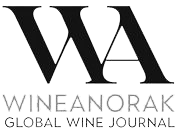
In Niagara, Part 6: Cave Spring Vineyard
"One of Niagara’s most important producers is Cave Spring..."Author: Jaimie Goode
Publication: Wineanorak.com
Published: 08/2022
One of Niagara’s most important producers is Cave Spring. They are probably most famous for their Rieslings, but everything they make is worth attention. The home site is a 64-hectare vineyard on the…
Read More

Ontario Sparkling Wine: tasting 29 different wines from Niagara and Prince Edward County, Canada
Cave Spring Vineyard Sparklers Rated #1 and #2 in Ontario by Top U.K. Wine WriterAuthor: Jamie Goode
Publication: Wineanorak.com
Published: 08/2022
Canada’s Ontario wine regions have quite a talent for sparkling wine, and this is becoming quite an important category. Here I tried 29 different wines, and I’ve ranked them in order of scores.
Cave…
Read More

Canadian Riesling Sans Glace
Prestigious US Food Magazine Features Cave Spring RieslingAuthor: Kevin Shaffer
Publication: the Art of Eating
Published: 02/2022
Drier Rieslings can be tart and austere, but the examples from Cave Spring have a pleasingly soft texture. 2018 was a warm year that produced small, intensely flavoured berries. Fermented in…
Read More
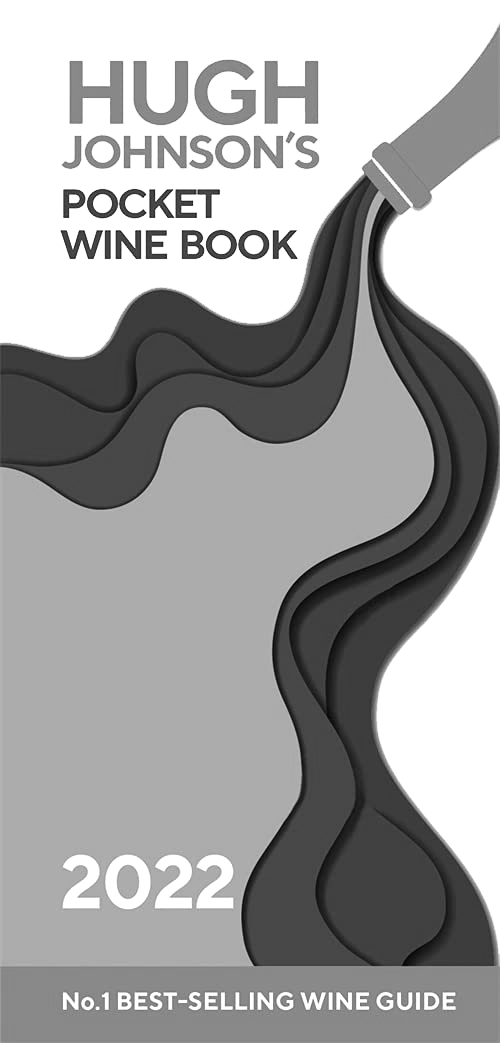
Hugh Johnson's Pocket Wine Book 2022
The World’s Top Selling Wine Guide Rates Cave Spring Vineyard Four StarsAuthor: Anthony Gismondi, Margaret Rand
Publication: Hugh Johnson's Pocket Wine Book 2022
Published: 01/2022
Regional pioneer with impressive old-vine vineyards. Elegant CSV wines age effortlessly.
Read More

Wines of the Week, Cave Spring
Top European Critic Profiles Cave Spring Vineyard RieslingAuthor: Ian D'Agata
Publication: TerroirSense
Published: 10/2021
Cave Spring is one of Canada’s best wineries and has a very long track record (at least in terms of Canadian wine history, but Cave Spring was one of the first in the country to plant vinifera…
Read More

Top 20: Canadian Riesling
Riesling CSV 2017 Rated Top Canadian Riesling by UK's Pre-eminent Wine MagazineAuthor: Michaela Morris
Publication: Decanter Magazine
Published: 06/2021
2017 Rieslng CSV | Top Rated Canadian Riesling | 94 Pts
From the estate’s oldest blocks, between 40 and 44 years old. The quirky 2017 vintage – cool and cloudy throughout the summer then warm and…
Read More

It's Bubbling in Canada!
Norwegian Daily Takes Note of Cave Spring Sparkling WineAuthor: Ingvild Tennfjord
Publication: Aftenposten
Published: 03/2021
NV Blanc de Blancs Brut, Beamsville Bench, Estate Grown | 93 Pts
It's bubbling in Canada! The wine world is changing. Global warming means that new areas are emerging. Is Canada the next big thing?…
Read More

After the Gold Rush
Wine Spectator Rates 2017 Riesling Icewine 93 PointsAuthor: Bruce Sanderson
Publication: Wine Spectator
Published: 02/2020
Canadian Producers are ushering in a new era of quality north of the border.
Cave Spring Vineyard, an early proponent of vinifera, planted Riesling
obtained through Hermann Weis of St. Urbans-Hof in…
Read More






